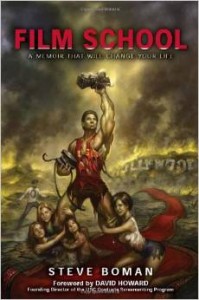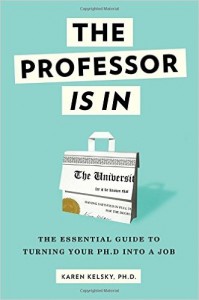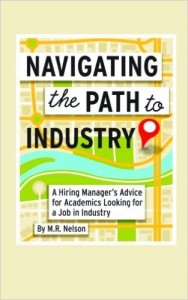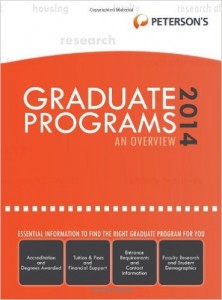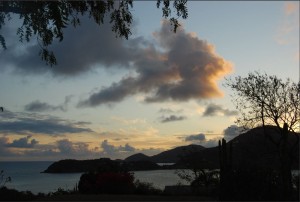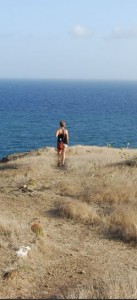This is the next in a series of posts by recipients of the Career Services Summer Funding grant. We’ve asked funding recipients to reflect on their summer experiences and talk about the industries in which they’ve been spending the summer. You can read the entire series here.
This entry is by Zahra Mion, COL ’16
 My summer internship experience has definitely been a rollercoaster ride. Though I knew I wanted to work in politics, it had taken me much longer than expected to reconcile myself to the idea. All my closest friends were spending the summer in New York; I was living more than two hour train ride away from my family and hometown friends; and I would be living by myself in a city I had only visited and knew no one in. But at the same time, I had gotten my dream internship — working for the Commission on Civil Rights. I always knew that I wanted to somehow combine my passion for civil rights, politics, the law and social change but never really wanted to be a politician, considered law school but was terrified by the idea and could not envision working on less than 30,000$ a year for a non-profit type organization. So the Commission seemed perfect to me.
My summer internship experience has definitely been a rollercoaster ride. Though I knew I wanted to work in politics, it had taken me much longer than expected to reconcile myself to the idea. All my closest friends were spending the summer in New York; I was living more than two hour train ride away from my family and hometown friends; and I would be living by myself in a city I had only visited and knew no one in. But at the same time, I had gotten my dream internship — working for the Commission on Civil Rights. I always knew that I wanted to somehow combine my passion for civil rights, politics, the law and social change but never really wanted to be a politician, considered law school but was terrified by the idea and could not envision working on less than 30,000$ a year for a non-profit type organization. So the Commission seemed perfect to me.
Of course I knew I wouldn’t be writing reports for Congress or the President as an intern, but even with that understanding my experience was not at all what I was expecting. To put it simply, it was a lot like learning how sausage is made. I never truly understood just how huge our government is, and how much red tape there is until I got my first assignment. It seemed pretty straight forward: research each state’s Equal Employment Policy, paying specific attention for mention of transgender or gender identity language. I expected all the states to have similar policies, mostly because when I think of Equal Employment one specific definition comes to mind. However, after digging and digging to even find the actual policy of states, the range of language was unbelievable— there were some states that didn’t publish their policy, others that only mentioned equal employment with consideration to race, class and gender, and still others that included things like genetic history.
Eventually, my tasks got a little more substantive and I was assigned to analyze the federal governments compliance with the Prison Rape Elimination Act (PREA) for an upcoming report on immigrant detention facilities. Again, I had a bit of an eye-opening experience. When I asked my supervisor what sources I should be relying on, I was told to use anything. Now, perhaps it was me being naive about how DC runs but I was shocked. I hardly use EBSCO in my research papers (I’m much more of a JSTOR person), so having free range for a government mandated assignment seemed wrong to me. When I found myself on a white supremacist site, I obviously used my common sense and did not quote the website, but for some reason the casualness of the task shocked me. One of the things I liked most about my internship was how much I learned through my research. Sure, every now and then I would find myself on a white supremacist site or somehow reading about how the illuminati was really running the government, but for the most part I was reading reports from the ACLU, DOJ, MALDEF, HRC and other civil rights groups. Not only was I able to greatly increase my knowledge of immigration issues, but I also found a lot of organizations that I would love to work for in the future.
On more than one occasion, my intern friends and I went to the Hill to watch Senate hearings (one of the many perks of living in DC). Again, I experienced the paradox of Washington—somehow very casual and very serious at the same time. I was sitting behind Samantha Power, the US ambassador to the UN, her body guards were seated on one side of me and I could see the CSPAN camera panning to the area I was in. I finally felt like I was in Washington, DC. And then a senator’s phone went off. Not only did the phone go off, but it was answered! To top it all off, after that interruption of casualty, the room was cleared due to a bomb threat.
One of the most exciting times of my internship was when I got to sit in on a Commission briefing on minorities in higher education. The hearing was far from boring, especially since such a contentious issue was under discussion. It was exiting to just be a part of the briefing. One of the Commissioners even asked the interns if we had any questions we wanted to ask. I submitted a few, but not surprisingly none of them made it. I preferred the Commission hearing to the Senate hearing, mostly because I think there was less politics involved. It seemed like the Commissioners, regardless of their own political affiliation, were looking for tangible solutions to the problems at hand, while at the Senate hearing it seemed liked everyone was concerned with confirming that their political ideologies were being implemented.
Overall, I definitely enjoyed my summer internship. I met amazing people who were equally as politically and socially active as I was. I was reassured in my ultimate career path, and I’m certain that I’ll be able to find a place in Washington where it feels like I’m doing substantive work while also making a difference.


